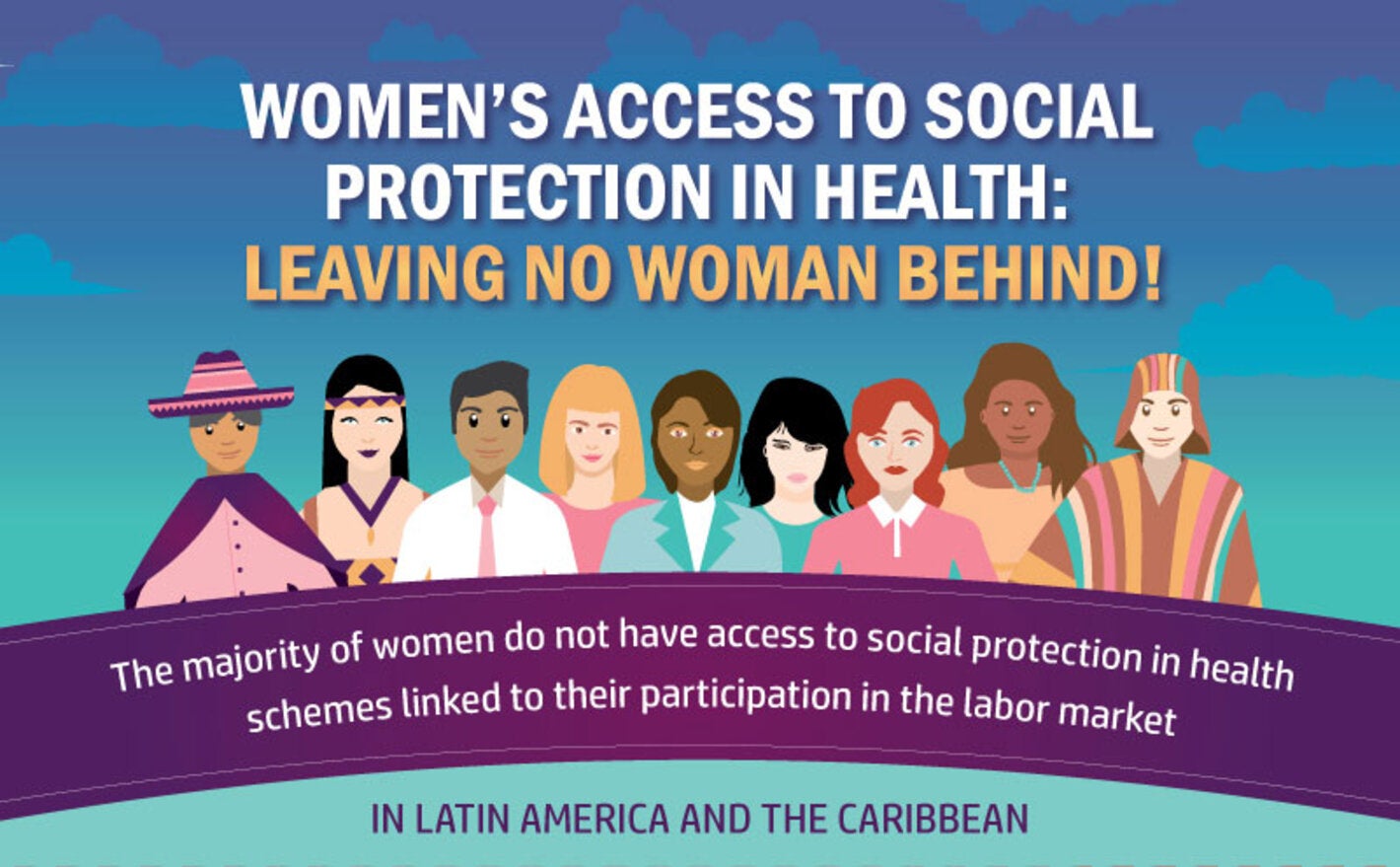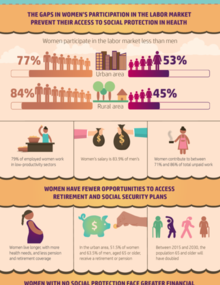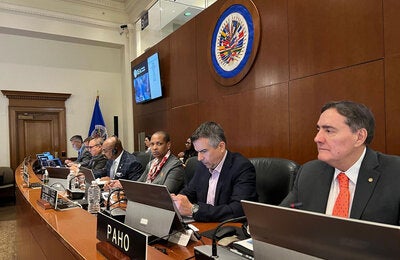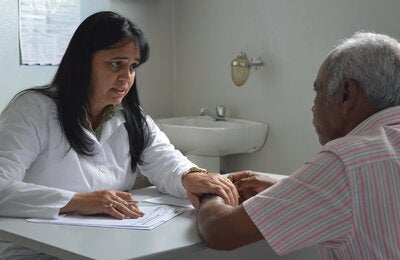
Statement by Dr. Carissa F. Etienne, Director of PAHO-International Women's Day, March 8, 2017
This year, PAHO is marking International Women's Day with a focus on women's access to social protection in health, highlighting how the realities of women's unequal participation in the labor market can make the difference between their access to universal health on the one hand and the disproportionate risks of catastrophic health expenditures and inability to access care on the other.
Our discussion of this topic is catalyzed by the United Nations' general theme for this year's observance: "Women in the Changing World of Work." This focus is extremely timely as we envision the transformation of our world with the roll-out of the 2030 Agenda for Sustainable Development. The resulting Sustainable Development Goals (SDGs) challenge us to transform our world, tasking us to find real answers to meet the needs of all people, and to ensure that no one is left behind. In the Region of the Americas, the need for transformation resonates yet more loudly as we continue to witness unequal progress among and within countries regarding the social determinants of health. Whether we are born women or men also carries particular significance.
Against this backdrop, the focus of this International Women's Day has special relevance to PAHO's strategic goal of universal health. On the face of it, today's theme draws attention to women's economic empowerment by garnering action to achieve sex parity in the workplace by 2030. Economic empowerment is vital to achieving gender equality, including in health, as we all know. Women's economic empowerment is not just an end in itself as their participation in the labor market is intimately linked to social protection in health. Examining these linkages is critical for achieving universal health for women.

The countries of the Americas are individually and collectively galvanizing actions to meet the commitments and achieve the goals of PAHO's Regional Strategy on Universal Access to Health and Universal Health Coverage. Three of the underpinning priorities of the strategy for universal health are equitable access to comprehensive quality services, improved governance, and health financing. Specifically, the strategy urges Member States to work towards eliminating direct payments at the point of health care delivery. We know that these out-of-pocket costs constitute a barrier to access at the point of service, so avoiding such costs lessens the risk of impoverishment and exposure to catastrophic expenditures.
Direct payments can be eliminated by improving social protection in health, but we know that many of our social protection mechanisms are not altogether gender specific. Women are disadvantaged because of the nature of their participation in the formal labor market. In the Americas, women's participation in the labor market is just 53% in urban areas compared to 77% for men. Additionally, 79% of employed women work in low productivity sectors, where rates of access to social protection are low. The data from Latin America and the Caribbean show that women contribute between 71% and 86% of total unpaid work, limiting their opportunities to enter the labor market, to participate in the formal sector, and to earn better salaries with pension and health insurance benefits. Women as a group are less employed, work longer hours, earn less pay, and have fewer guarantees to social protection in health, including lower rates of pension and retirement coverage.
This reality is compounded by the fact that, in Latin America and the Caribbean, women live longer and experience more health needs, due in part to their reproductive role. This means that the potential for out-of-pocket expenditure on health and catastrophic health costs is higher for women. Indeed, the available data for several countries of the Region show that women across all income groups report problems accessing health care due to difficulties in accessing money for treatment. For the lowest income groups, between 37% and 90% of women have reported such problems, depending on the country.
Therefore, for women to be able to fully exercise their right to social protection in health, improving their social, economic, and cultural conditions must have the highest priority in the debate and design of social protection schemes, health financing mechanisms (including health insurance), and pension policies. We need to take into account the realities of women's unpaid care work by developing gender-sensitive public policies that help to remove the barriers to women's participation in the paid workforce. Within strategies targeting universal health, access to social protection in health should be guaranteed, regardless of one's financial contribution.
Simply stated, countries, partners, and donors, under the umbrella of strong political stewardship, must invest in and defend social protection in health, recognizing that women live within contexts of unequal distribution of power and wealth that go beyond the health sector and are contributors to and beneficiaries of health. For PAHO, putting all people at the center of health and development is a political, technical, and moral imperative. In 2005, PAHO adopted the Gender Equality Policy in the Americas, which made that commitment clear. Within the current context of a bold and visionary SDG agenda, PAHO welcomes this overdue debate on how to ensure that women have access to social protection in health and the related call to action on women's employment and sex parity.



